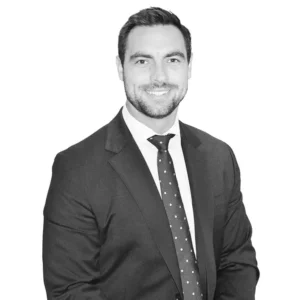Collecting Wisdom
As we get older, we acquire quite a robust library of life lessons. My life lessons tend to be accompanied by a vivid memory of when I first acquired each particular lesson/truth. For today’s topic, I’d like to recall a memory from January 2020.
I was sitting in my office in Newport Beach, conducting a review meeting with a client that had been with our firm for less than a year. The meeting was chock-full of very engaging questions, and we were pushing the ball down the field on the first iteration of their financial plan. One of my colleagues dropped in to introduce themselves, and the three of us got into a discussion about this new Covid-19 virus. We tackled questions like, what impact would Covid-19 have on society? Our economy? The market? Our investment portfolios? And so on…
Again, this dialogue is one of those vivid memories I mentioned above. As we went around the table offering our opinions and forecasts, I remember comparing Covid-19 to the SARS virus and a former Ebola scare. I referred to the market’s reactions to those events and offered a comparison that we could use to anchor our expectations. This dialogue wasn’t just meant as banter, but the client wanted to know how they should react. I advised my client not to react and to stay the course of the current strategy and plan we had in place.
Wrong Prediction, Right Advice
I was wrong. I was absolutely wrong. Covid-19 wasn’t much like those other events I referenced. Covid-19 had a meaningful impact on our society and will be one for the history books. I was wrong, and I gave good advice. Did you catch that? I was both wrong and provided my client with good advice. I didn’t expect the market to have an immediate 30% negative reaction to Covid-19, and I didn’t expect the recovery to be even more violent to the upside.
“Stay the course” or “Endure and be patient for this to normalize” was the right advice, although my short-term forecasts were dead wrong. Let’s dig a bit deeper and conclude where each of these opinions was derived from. My opinion about Covid-19 was rooted in my gut, intuition, and anchoring to what I thought to be similar historical occurrences. My advice about not reacting to the news, advising against trying to time the market, guiding not to disrupt the strategic asset allocation and financial plan was rooted in my studies of market history. This book title says it all, “Triumph of the Optimists: 101 Years of Global Investment Returns” by Elroy Dimson. One hundred-one years of market returns should convince you to be an optimist, and my advice was anchored in this optimism.
As a market historian, I expect uncertainty, uneasiness, and fluctuating prices (volatility); I feel uncomfortable when this [volatility] isn’t present, an eerie calm before the storm feeling. As a financial planner, I expect dividends to be consistent, durable, reliable, growing, etc. I’m willing to accept price volatility for the premium that it produces in growing stock prices. Still, my clients need a consistent paycheck, so I’m not ok with volatile dividends – and historically, they [dividends] haven’t been.
Recapping…
Key takeaways? I am a horrible short-term forecaster, which places me in good company because most of us are not. Perhaps many of us have an opinion about who will win the Super Bowl, but none of us can predict this with 100% certainty; it is unknowable. I don’t know what will happen with markets this week or even this year, but I am grounded in the reality that long-term outcomes for investors have been both positive and rewarding. The stock market’s track record shows persistence and statistical significance, and I would go as far as to say that it is wise to foundation your beliefs about markets in this rich history of outcomes.
In a recent interview with Morningstar, Wall Street Journal writer Jason Zweig was asked, “What does expertise mean? And why have people become so distrustful of experts, not just in the investment context, but seemingly in other areas as well?” The interviewer wanted to know the true signs of an expert or a real professional. Zweig has a long and thoughtful answer, but I will highlight one particular quote, “So, one of the key tests for whether somebody is an expert is whether they’re willing to say, I don’t know, or I believe, or this is probable or likely, rather than giving answers that are all about certainty.“
Let me reiterate this point, I was wrong. I’m often wrong. I’m human. And I aspire to be less wrong as I mature and grow in my craft, but like many of us, I’m a work-in-progress and a lifetime learner. As fun as it is to make short-term forecasts (guesses) or to try to predict the winner of a sports match, it’s not wise to put confidence in our speculations. My real advice, the advice you should pay attention to, is the planning around long-term goals and outcomes. This is the area my advice matters and where my batting average needs to be strong.
What If… What If… What If…
To bring this conversation full circle, I would like to draw your attention to a recent conversation with a potential new client. I had gone through a pretty hefty presentation and had made some recommendations that looked drastically different than this investor’s current portfolio design and financial plan. This individual finished their diligence with a handful of closing questions, and I could feel it in their voice and tone. They wanted to know if I was trustworthy and if my advice was reliable. This resonated with me because I know the client/advisor relationship hinges so much on trust. I decided to focus on where exactly my advice came from in my closing remarks. I wanted them to know that this advice wasn’t conjured up based on a “feeling” I had or based on a recent article that I had read, but rather this advice was birthed out of my studies of market history. I told them that this portfolio design and financial plan wasn’t built to address every “what if” out there but instead designed with history in mind. What have we seen in markets over the last century? How have markets behaved? How have investors behaved? These were the questions and the data driving the design. Could there be another civil war? Does Zimbabwe like inflation in the United States? An alien invasion? The “what if” scenarios are endless, and if I am being completely honest, most of our planning is rooted in what has happened in history, not what could happen.
I emphasize this point because we must admit our limitations as advice-givers and investors and be honest about the foundation of where we are drawing our recommendations from. Life is full of curveballs and surprises, but as the author of Ecclesiastes concludes, “What has been is what will be, and what has been done is what will be done, and there is nothing new under the sun.” Markets are full of uncertainty, and this is where we derive our premium returns from, enduring this reality. We will never have perfect knowledge, and we must know that an anxiety-driven approach, living in fear about what “could” be lurking around the corner, can be a debilitating feeling.
The Hall of Fame
I’ll wrap up my thoughts here. I found this to be an interesting list:
| Rank | Player |
| 1 | Kobe Bryant |
| 2 | John Havlicek |
| 3 | Elvin Hayes |
| 4 | LeBron James |
| 5 | Karl Malone |
| 6 | Dirk Nowitzki |
| 7 | Kareem Abdul-Jabbar |
| 8 | Carmelo Anthony |
| 9 | Michael Jordan |
| 10 | Vince Carter |
| 11 | Dominique Wilkins |
| 12 | Elgin Baylor |
| 13 | Allen Iverson |
| 14 | Wilt Chamberlain |
| 15 | Paul Pierce |
| 16 | Kevin Garnett |
| 17 | Russell Westbrook |
| 18 | Ray Allen |
| 19 | Alex English |
| 20 | Hal Greer |
Now, above, I’ve provided you with a list of names but no context to what exactly these rankings are based on. If you scan the list, and even if you are a casual basketball fan, you recognize the rich list of Hall of Famers captured here. So, what is this ranking? This list is ordered by the most missed field goals of all time. How could that be? How could the best of all time carry the trophy for the most misses too? In the same way that being wrong can accompany good advice, the greatest players of all time also miss a lot of shots.
It’s ok to be wrong. It’s ok to miss a shot. Know your limitations and play to your strengths. Short-term forecasting and market timing are probably not your strengths, so lean into long-term planning and glean the benefits from long-term compounding. If Kobe Bryant agonized over every missed shot, he wouldn’t be Kobe Bryant, and in the same respect, you can’t let the risk of being wrong paralyze you from planning, and you can’t drown in the pool of what if’s.
… and that’s it, that’s all I have for you this week. I hope you join us next week for more of my Thoughts on Money… what we like to call, TOM!





